Finance Minister Edward Sciclina’s net wealth is increasing by around €60,000 to €70,000 per year – an amount equal to Prime Minister Joseph Muscat’s unchanging bank balance in his asset declarations.
Scicluna’s asset declarations show that on average he is the most ‘cash-rich’ member of the Cabinet, with over €700,000 in deposits. This also makes him one of the biggest earners and savers, although this does not mean he is necessarily the wealthiest.
The scant details provided in the asset declarations of Ministers and Parliamentary Secretaries makes it impossible to determine the real value of assets across the board. A probe of the declarations of assets of Ministers and Parliamentary Secretaries over seven years conducted by The Shift News showed much was hidden behind what was said.
Scicluna’s income as Minister was €62,979 in 2018. It was topped with over €52,000 in “pensions, interest and dividends”. At least part of that comes from coupons paid by his €152,000 in government bonds.
In his asset declarations, the Finance Minister continues to modestly refer to “own residence” at a Naxxar address for what is a sprawling villa at San Pawl Tat-Targa. Assassinated journalist Daphne Caruana Galizia noted this in the Labour Party’s first year in government in 2013, pointing out that the difference in value amounted to hundreds of thousands of euro.
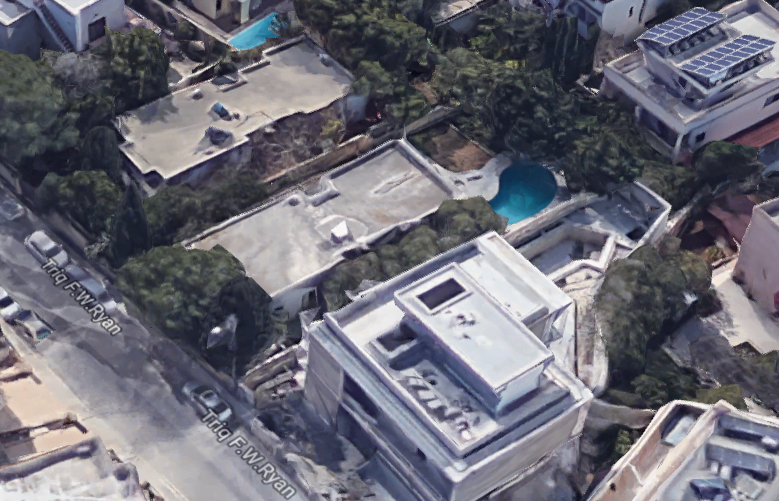
Edward Scicluna’s villa in Naxxar. Source: Google Maps.
Scicluna has held onto his 100% (less one share) ownership of Applied Economics Consulting Limited (listed as AEC Ltd), a company now dedicated to holding 2% or 20,000 shares in Cottonera Waterfront Group plc, according to the company’s latest accounts.
The Finance Minister’s modest description of the company as “CWG plc” probably does not do justice to the entity behind what former Labour Party Leader Alfred Sant had described as “scandalous speculation”.
“This is a scandal that we condemn outright. This is the first time I have seen the extent of this concrete sprawl, and I am flabbergasted,” Sant had said as Opposition Leader in 2002, describing the project as “merely a means of lining the pockets of a few speculators”.
The only ones to come close to Scicluna, in terms of income, are Education Minister Evarist Bartolo and Energy Minister Joe Mizzi. Their individual annual income now surpasses €100,000 – in 2018, Bartolo and Mizzi were awarded €33,000 in treasury pension over and above their emoluments as Minister and their social security pension.
These three Ministers – Scicluna, Bartolo and Mizzi – earn more than Prime Minister Joseph Muscat.
Muscat’s salary was €55,978 plus €6,769 in allowances last year, according to what his spokesman told Reuters. It was not possible to confirm this against the Prime Minister’s asset declarations since he stopped disclosing the amount in 2015, while listing an unchanged bank balance for four years running.
A sample of the asset declarations of Prime Minister Joseph Muscat and Finance Minister Edward Scicluna shows the scant details included. That is the Finance Minister and the Prime Minister setting the standard.
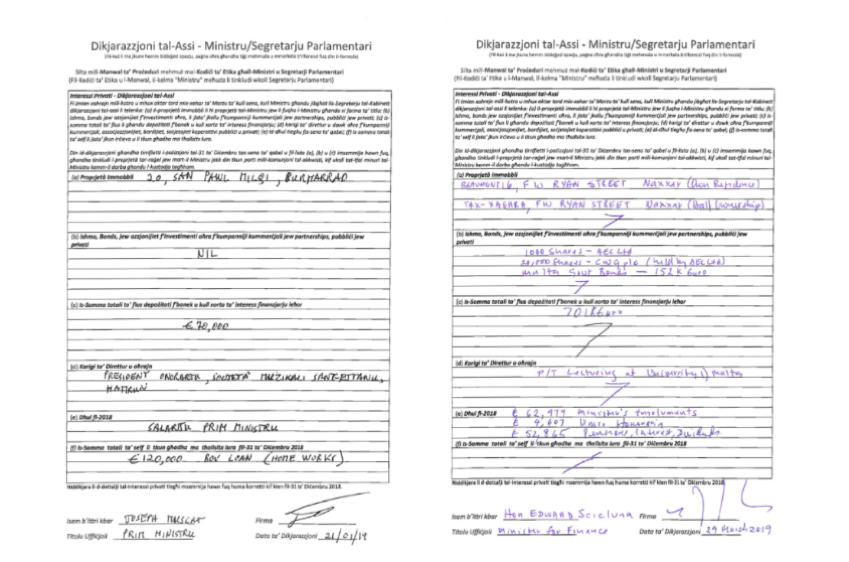
The asset declarations filed by Prime Minister Joseph Muscat and Finance Minister Edward Scicluna in 2019.
There’s no value for the vaguely described properties, no details of shareholdings in companies (if the name is even correct), no names of banks (a bank balance in Cyprus or Dubai would not show up), no values of investments, and liabilities are limited to bank borrowings.
Movables are also not listed. Imagine, a minister could buy a yacht (or a fleet), a Lamborghini or a warehouse full of antiques and not be required to disclose those assets. In fact, Scicluna’s passion for sailing yachts leads to some interesting links online.
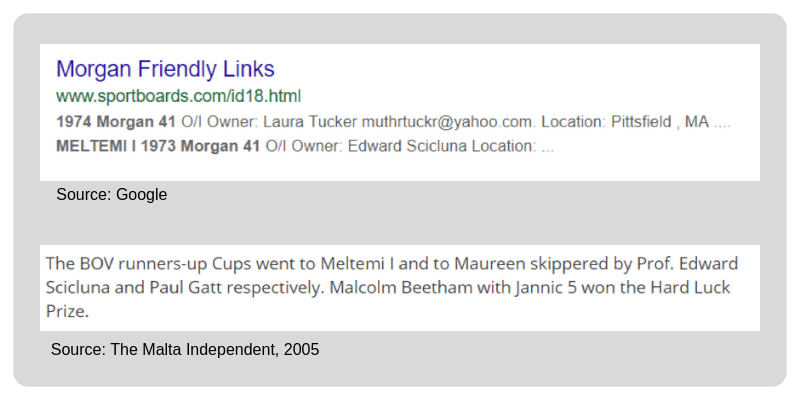
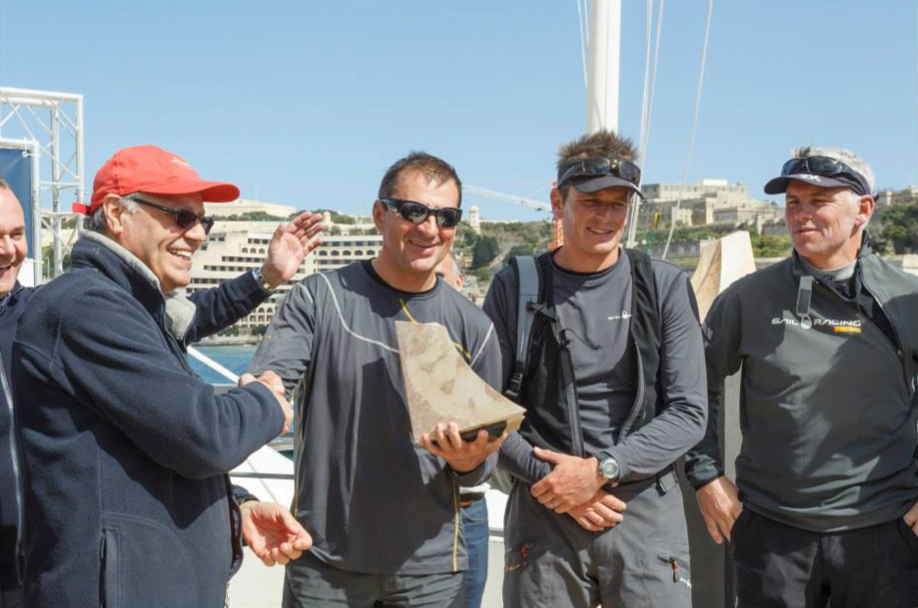
Finance Minister Edward Scicluna at a prize-giving ceremony at the Royal Malta Yacht Club.
Perhaps his next passion is online videos, sometimes peppered with references his other passion, sailing.
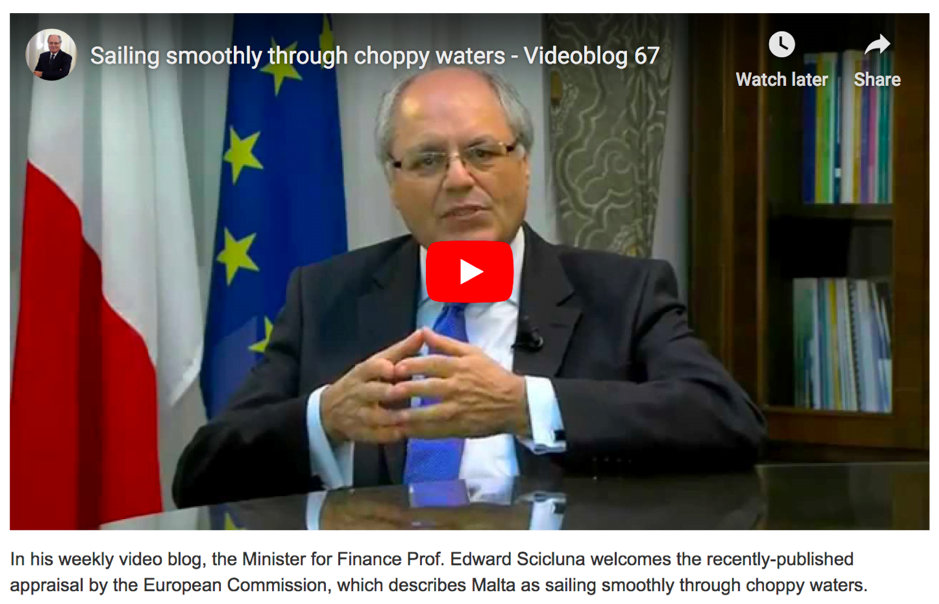
As Minister, his notable remarks are perhaps the least illustrious in anyone’s political career, such as his frustration that he could not go anywhere in the world without hearing about corruption and the rule of law in Malta.
“It’s not just international bodies like the International Monetary Fund and credit rating agencies, even if I’m in a taxi in South America I get asked about the situation and have to explain,” he said.
He proceeded to do this by telling US news programme 60 Minutes in December 2017 that the situation in Malta “looks bad, but it’s not bad”.
In terms of his own situation, Scicluna’s is as good as it looks.













